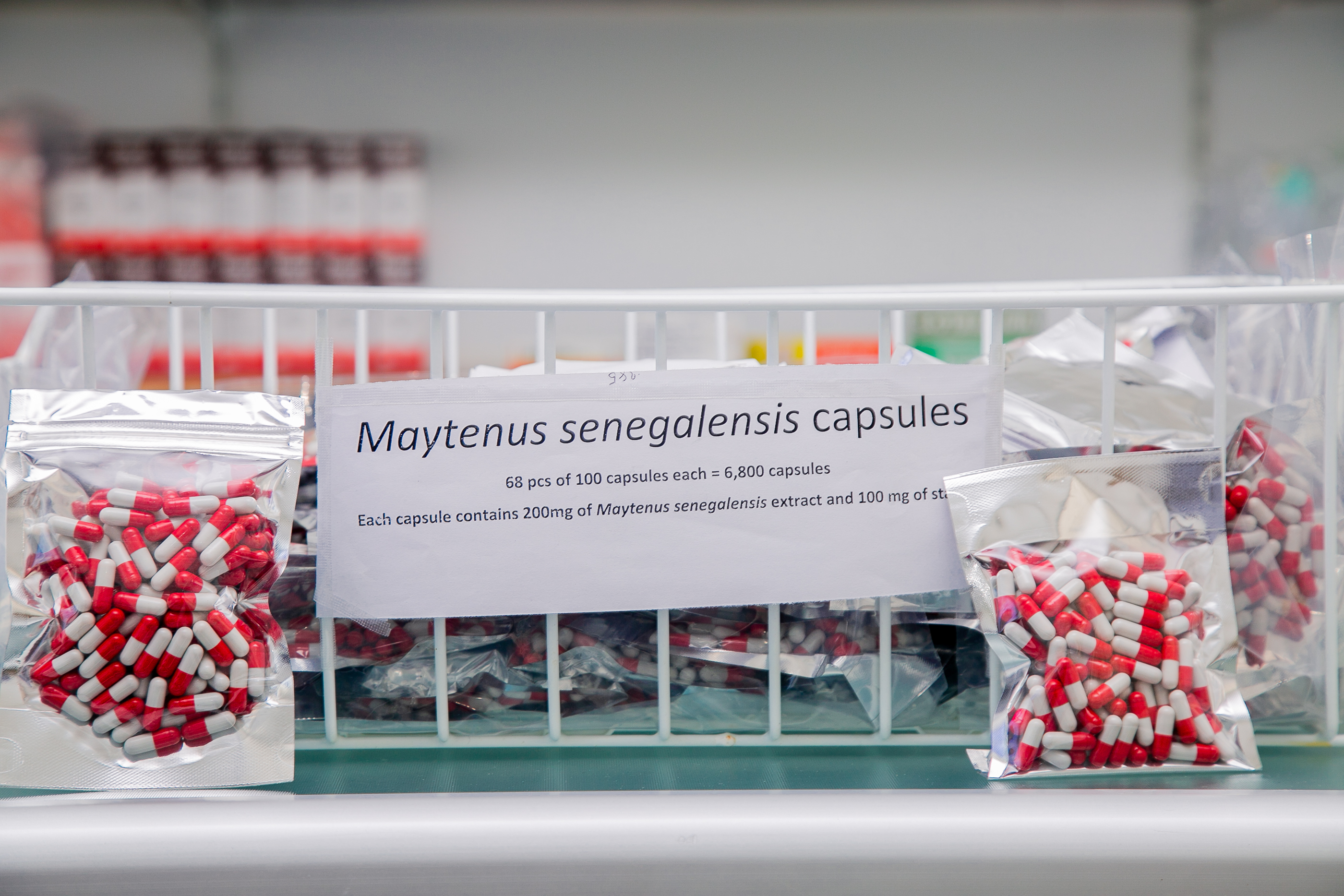
Principal Investigator: Kamaka Ramadhani; Florence Milando, and Justin Omolo
Project leader/ Coordinator: Kamaka Ramadhani
Project Administrator: Rashid Salim
Funding Partner: Rudolf Geigy Foundation
Start date: June 1, 2021
End date: May 31, 2022

Evaluation of malaria herbal remedy - maytenus senegalensis - for the treatment of uncomplicated malaria episodes in adult patients as compared to Artemether-lumefantrine
This study aims to evaluate development strategies for the treatment of uncomplicated Malaria episodes in adult patients. The study will assess a new malaria treatment product, maytenus senegalensis (MALHERBAL), a malaria herbal remedy in comparison to artemether-lumefantrine.
The primary objective of this study will be to assess the safety and tolerability of malaria herbal remedy of MALHERBAL among healthy male adults aged between 18 to 45 years living in Tanzania. The second objective will evaluate the safety, tolerability as well as the effectiveness of malaria herbal remedy MALHERBAL for the treatment of Tanzanian adults aged 18 to 45 years with uncomplicated malaria compared to artemether-lumefantrine.
Outcomes from this study, will address the critical need for malaria control in Africa by using new antimalarial drugs through exploiting the rich, natural biodiversity of Africa and identify new malaria treatment products that can counter the emergence of antimalarial resistance in South East Asia.
Malaria is a disease of poverty and still a major global health problem, especially in Africa. Almost all African countries are located in a malaria-endemic area. In 2018, it was estimated that 228 million cases of malaria occurred worldwide with most of these cases coming from Africa. Tanzania is among the top ten countries with the highest burden of malaria in the world.
The study design will comprise two study groups (G1 & G2) from which comparisons will be made on the results gathered. The G1 study design will be an open-label, dose-escalation study evaluating the safety and tolerability of Maytenus senegalensis among 12 healthy male adults aged 18 to 45 years in Tanzania. The study population will be given Maytenus senegalensis and monitored for 56 days.
An independent safety monitoring committee (SMC) will determine when the participants can proceed from G1 to the enrolment of G2 after reviewing pre-specified “go or no go” criteria. These criteria will be based on safety data obtained from 12 participants in G1 on day 28 after the first treatment.
The G2 study design will be a single-center Phase IIa, open-label, safety assessment, and a 2-arm randomized, controlled study. This group will be used to evaluate the safety, tolerability, drugs activity, and efficiency of malaria herbal remedies in the treatment of malaria episodes among male adults aged 18 to 45 years with uncomplicated P. falciparum malaria, compared to artemether-lumefantrine.
Group G2a comprising 52 patients will be treated with the maytenus senegalensis while group G2b, also comprising 52 patients, will be treated with Artemether-lumefantrine. Patients from both groups would be monitored for 56 days with rescue treatment being used in incidences of any treatment failure.
This study’s duration is expected to be 12 months, starting in June 2019 to May 2022. Ifakara Health Institute is conducting this study with the financial support from the Rudolf Geigy Foundation. The principal investigators for this study are Kamaka Ramadhani; Florence Milando, and Justin Omolo. Kamaka Ramadhan will be the project leader and Rashid Salim is the project administrator.
